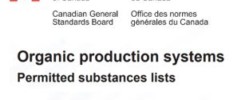Serotonin is the neurotransmitter that makes us feel calm and good. It is commonly called the happy hormone but it doesn’t technically make us excited happy; that feeling comes from a combination of serotonin and dopamine. When we don’t have enough serotonin can feel the following in varying degrees:
- Depression
- Loss of interest in things we normally enjoy
- Irritability
- Lack of motivation (due to a decrease in dopamine)
- Easily overwhelmed
- Less social
- Lower pain tolerance
- Lethargy/ fatigue
- Hopeless
- Still feeling tired after sleeping
- Changes in appetite
- Loss of sex drive
- Poor ability to regulate body temperature
Low serotonin is a physiological situation that is not fixed with phrases like ‘look on the bright side’ or ‘things could be worse’. Those expressions are well-meaning but the brain doesn’t make more serotonin when the person hears these kinds of comments.
Serotonin is made from an amino acid called tryptophan that is converted into 5HTP which is then converted into serotonin. Tryptophan is an essential amino acid so it cannot be made by the cells, we need to consume it. If any of the steps involved in production of serotonin are inhibited then there will be a lack of serotonin.

1. First thing to consider is if you are consuming the starting material for your body to be able to make serotonin. Foods that contain tryptophan include: nuts, seeds, red meat, cheese, turkey, chicken, fish, oats, beans, and lentils.
You could try a tryptophan supplement if you think you are not getting enough, but if you are consuming those foods then that should not be the limiting factor. Also, giving your brain more tryptophan doesn’t mean your brain will use it to make more serotonin.
2. The second factor to consider is blood sugar fluctuations. The brain needs a constant supply of blood sugar to be able to make the ATP (energy) to make neurotransmitters like serotonin and dopamine. If we eat too much sugar or starchy foods then we make more insulin that causes blood sugar to go down leading to a roller-coaster of blood sugar fluctuations, this affects how amino acids like tryptophan are transported across the blood brain barrier. Craving sugar is an indication that you have fluctuating blood sugar and possibly low serotonin, which makes you crave more sugar. Most serotonin is produced in the digestive tract when we eat satisfying delicious food – which is why we can crave comfort foods when we have stress.
3. Third factor is to make sure you have healthy gut bacteria, many studies show a direct link between the gut microflora and mood. Gut bacteria need fiber to be healthy so make sure you are eating plants. If you have recently taken antibiotics then perhaps a probiotic supplement will help repopulate your intestines. You can also add probiotic foods to your diet such as yogurt, kombucha, kefir, or kimchi.
4. Fourth factor is exercise – exercise directly stimulates the production of serotonin and dopamine. especially high intensity exercise.
Some supplements that have been shown to be helpful in some people:
- Sometimes the conversion to 5HTP is the problem and there are 5HTP supplements available. This supplement works great if this is the limiting factor, so it may be worth an experiment, give it 30 days to see if it makes a difference. If it doesn’t help then you know this step is not your problem.
- John’s wort has been shown to be effective in some people for alleviating symptoms of depression. St. John’s wort acts on serotonin receptors and helps keep the serotonin that is produced in the synapse for longer, acting like a mild SSRI (serotonin reuptake inhibitor) drug.
Make sure to talk to your doctor if you are taking antidepressant medication, supplements can interfere with mediation or have synergistic effects!

